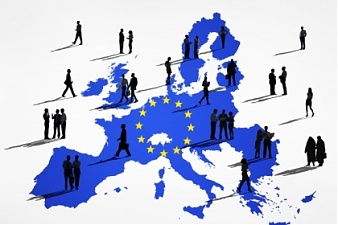Ecology, Energy, EU – Baltic States, Legislation, Lithuania, Transport
International Internet Magazine. Baltic States news & analytics
Saturday, 13.12.2025, 20:56
Lithuania contests Mobility Package in EU Court of Justice
 Print version
Print version |
|---|
The ministry said it has filed two lawsuits, asking the court to annul certain provisions in EU legislation that affect Lithuanian drivers and haulers.
"Lithuania is firmly determined to protect the rights of its drivers and haulers," Justice Minister Elvinas Jankevicius said in a press release.
"While strengthening the EU internal market, we must preserve the competitiveness of our country's employees and businesses so that this sector is not discriminated against by subjecting it to unreasonable and disproportionate requirements," the minister said.
"This could also affect the country's finances as the planned budget revenues would decrease and expenditures would increase," he added.
Lithuania is contesting the provisions that require trucks to return to their country of registration every eight weeks, restrict cabotage operations within the EU, and change the rules for drivers' rest without the necessary infrastructure put in place.
In Lithuania's opinion, these provisions go against EU law and European Green deal objectives, because they restrict opportunities for Lithuanian businesses in other EU countries and increase pollution on the roads.
The country says small-sized businesses will be the most hit and almost 35,000 people in the sector will lose their jobs. Lithuania may have to spend around 111 million euros for unemployment payments for transport sector workers, and the country's GDP may decline by 1.6% because of the reform.
The European Parliament passed the mobility package in July. The reform is mainly supported by old EU members from western Europe, such as Germany and France. Eastern Europeans say the new rules will push their transport companies out of the market and will increase road pollution.
- 26.08.2021 LLC Dizozols Investments finalizes investment attraction deal with Crowdestor with record-high profits
- 30.12.2020 Hotels showing strong interest in providing self-isolation service
- 30.12.2020 EU to buy additional 100 mln doses of coronavirus vaccine
- 30.12.2020 ЕС закупит 100 млн. дополнительных доз вакцины Biontech и Pfizer
- 29.12.2020 В Латвии вводят комендантский час, ЧС продлена до 7 февраля
- 29.12.2020 Latvia to impose curfew, state of emergency to be extended until February 7
- 29.12.2020 Linde Gas открывает завод в Кедайняйской СЭЗ
- 29.12.2020 Number of new companies registered in Estonia up in 2020
- 29.12.2020 Президент Литвы утвердил бюджет 2021 года
- 29.12.2020 В Риге можно изолироваться в трех гостиницах








 «The Baltic Course» Is Sold and Stays in Business!
«The Baltic Course» Is Sold and Stays in Business!

